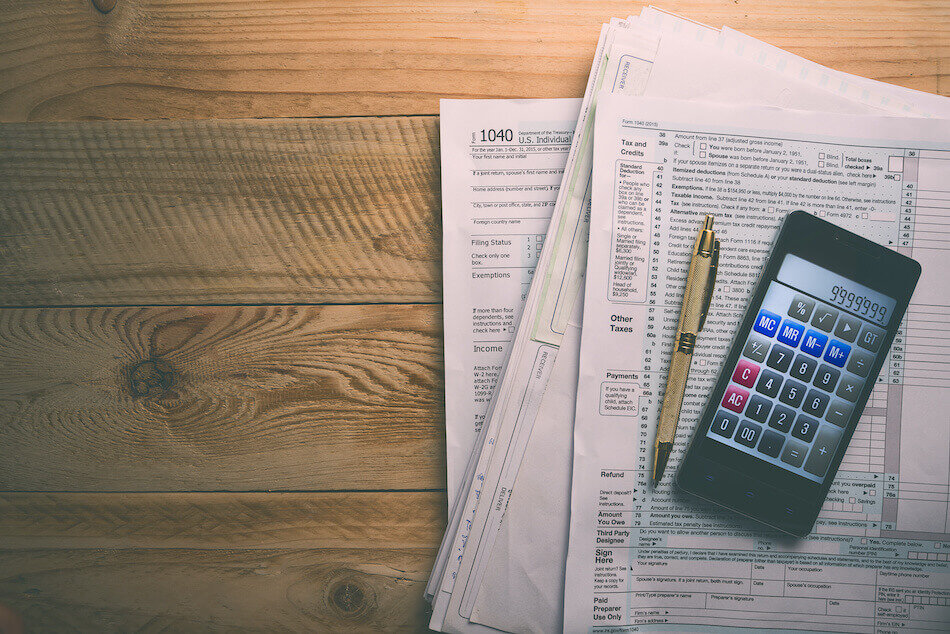 Selling to a cash buyer has its perks, like the fact that you can have the money in hand and the deal closed much more quickly than if you sold your home to a traditional buyer. If you’re considering taking advantage of the many perks of getting a cash offer, you should be informed of the tax implications to help avoid common mistakes when selling your home for cash. Although cash sales must be reported the same way as sales that involve a mortgage, it still helps to research possible tax implications of selling to a cash buyer to be sure that all documentation and potential tax expenses are covered.
Selling to a cash buyer has its perks, like the fact that you can have the money in hand and the deal closed much more quickly than if you sold your home to a traditional buyer. If you’re considering taking advantage of the many perks of getting a cash offer, you should be informed of the tax implications to help avoid common mistakes when selling your home for cash. Although cash sales must be reported the same way as sales that involve a mortgage, it still helps to research possible tax implications of selling to a cash buyer to be sure that all documentation and potential tax expenses are covered.
For informational purposes only. Always consult with a licensed real estate professional before proceeding with any real estate transaction.
Get a Cash Offer on Your Home With Cash Is King.
Want to skip the hassle of selling your home? We’ll make you a Guaranteed Cash offer. Get started now for free!
You May Have to File Form 8300
Form 8300 is an IRS form required for cash payments in a trade or business that exceed $10,000. If this reporting applies to a sale, the seller will have to file the form within 15 days of the transaction. Mortgage brokers typically file this form when they are involved in a sale. In a sale without a broker, the responsibility will fall to the seller if the form applies. Talk to a real estate lawyer to find out what your reporting requirements are.
Possible Capital Gains Tax Implications
If someone sells their home for more than they paid for it, they may owe capital gains tax on the profit. The profit is the difference between the buying and selling prices of the home, minus any necessary improvements in the property. So, a home that was purchased for $400,000 and sold for $700,000 after $50,000 in investments would have a $250,000 profit. Capital gains, however, do not apply in the same way to a second home or investment property as they would to a primary residence. If you have owned and lived in the home as your primary residence for at least two of the five years before the sale, you can exclude up to $250,000 of the profit (up to $500,000 if you are married and filing jointly) from capital gains tax. Additionally, the two years do not have to be consecutive.
Depreciation Recapture and Investment Properties
Many people who own investment properties offset their tax burden with depreciation deductions. These deductions treat the property as a depreciable asset with an assumed useful life. A seller who claimed depreciation deductions on a home as a rental property or business asset may be subject to depreciation recapture tax on the amount of depreciation claimed. This will be factored into the sellers’ income tax. Depreciation tax credits are assessed over time, so only credits taken for the time the previous owner will no longer own the home apply. A tax attorney can help sellers be sure they are reporting correctly.
Sellers May Owe State and Local Taxes
When selling your home, it’s important to consider not only federal taxes but also state and local taxes that may apply. Depending on where you live, you may be required to pay state or local taxes on the sale of your home. It’s important to note that state and local taxes are in addition to any federal taxes that may apply to the sale of your home. Depending on your individual circumstances, you may owe a combination of federal, state, and local taxes on the sale of your property.
To ensure that you’re prepared for all potential tax liabilities, it’s important to work with a qualified tax professional who can help you navigate the complex tax laws and regulations related to the sale of real estate. They can help you determine your tax liability and identify any potential tax-saving strategies to minimize your overall tax burden so you can sell your home ASAP.
Sellers May be Subject to Alternative Minimum Tax
A seller who has claimed certain tax deductions or credits in the past may be subject to the Alternative Minimum Tax (AMT) on the sale of their home. This will depend on the total profit and the tax credits taken in the past. Taxpayers should calculate their tax liability under both the regular tax system and the AMT system and then pay the higher of the two amounts.
Confidently Navigate Your Cash Home Sale
In most ways, a cash sale of a home is treated the same as a sale that involves a mortgage broker in terms of taxes. Knowing what to expect in advance can help sellers ensure that they’ve met all the requirements and won’t be surprised by a tax bill later on. Overall, it is important to consult with a tax professional and do your research before reaping the many benefits of securing a cash offer for your old home.
For informational purposes only. Always consult with a licensed real estate professional before proceeding with any real estate transaction.
Get a Cash Offer On Your Home
No Commission. No Hassle. You pick the closing date.
CashIsKing.com works with cash investors on a daily basis and partners with investors who can deliver quick cash offers on properties of all conditions and locations. Why wait? Get a cash offer from an investor today!
Get a Cash Offer
